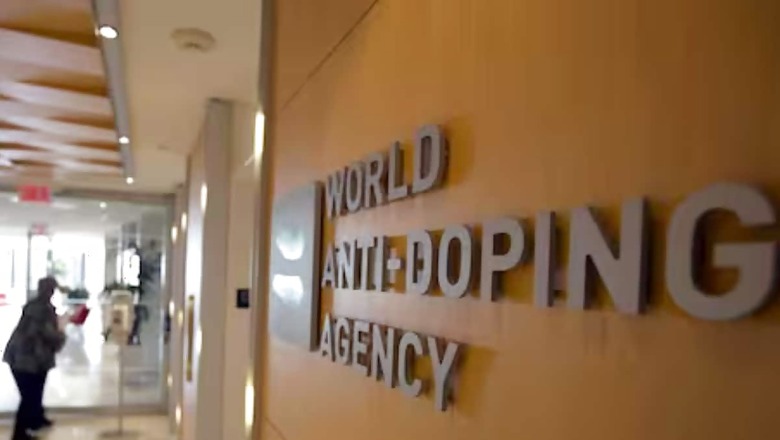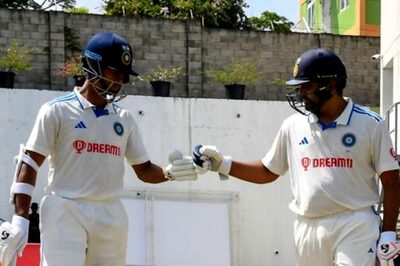
views
India was on Wednesday named as the second worst country in a 10-year global study of positive doping cases by minors conducted by the World Anti-Doping Agency.
Russia toped the list, followed by India and China, in the report published by the WADA on Wednesday on the findings of Operation Refuge’, a broad analysis and examination of doping amongst minors in sport.
“Countries with the most positive tests reported against Minors were (in descending order) Russia, India, and China. Countries with the most sanctioned Minors were Russia, India, and China,” the WADA said in the report.
“The Prohibited Substances most detected in Minors from those countries were, respectively, Furosemide, Nandrolone (or its precursors), 15 and Clenbuterol.
“The Prohibited Substances most responsible for the sanctions in those countries were, respectively, Furosemide, Stanozolol, 21 and Clenbuterol,” the world’s anti-doping watchdog said about the three worst countries as far as doping by minors is concerned.
A minor is defined by the WADA Code as a person under the age of eighteen years.
Since 2012, there have been 1,518 Adverse Analytical Findings (Positive Tests) reported against 1,416 Minors, with diuretics, stimulants and anabolic steroids being the most detected substances.
Overall, the substances which most often resulted in a doping violation and sanction were Furosemide and Metandienone, the report said.
The youngest minor to be sanctioned for a doping violation was 12 years old.
“Between 2018 and 2023,22 58 confidential reports implicating Minors in doping behaviours were received via WADA’s confidential reporting platform, Speak Up’,” the report said.
“Analysis of those disclosures revealed that the majority had originated from Russia and India, and that the most reported sports, globally, were aquatics and athletics.”
Operation Refuge’ reports in detail about the deep trauma and isolation child athletes experience following a positive test and doping sanction.
Undertaken by WADA’s Intelligence and Investigations Department, the report sheds light on the immense challenges faced by minors, their families and the anti-doping community when a child tests positive for a prohibited substance or method.
WADA director, Intelligence and Investigations, Gunter Younger, said: “‘Operation Refuge’ places a difficult but important issue into the spotlight. WADA’s Confidential Information Unit first raised the matter as it was concerned by the volume of reports received through its Speak Up!’ platform regarding doping activity amongst minor athletes.”
“The unit was driven by a desire to change how WADA and the anti-doping community investigate these cases. What started as a simple idea developed into a two-year long Intelligence and Investigations initiative to engage the entire anti-doping community to do better.”
“Thanks to this initiative, we are forging a better path forward for minors around the globe. We are working towards ensuring that the experiences of those interviewed during this operation do not continue to repeat themselves.”
Background on Operation Refuge’
In early 2021, WADA’s Confidential Information Unit (CIU) observed an increase in confidential reporting of doping activity amongst minors, including pre-teen athletes.
While the lack of detail in many of these reports prevented substantive enforcement action, WADA followed up every case and launched investigations where appropriate.
WADA was concerned by the nature and volume of reporting, leading to the commencement of Operation Refuge’. It examined the doping activities of minors with a view to identifying any patterns of offending, any deficiencies in governance, and any possible strategies on how better to address the issue of doping amongst minors.
WADA president Witold Banka said: ‘The data, conclusions and stories in the Operation Refuge’ report should reverberate loudly for us all throughout the sporting world.
“My hope is that the findings, and more importantly the first-hand accounts from minors and their support networks, will create a strong sense of urgency within the anti-doping community regarding the ways we can better protect youths who find themselves in these types of situations in the future,” Banka said in the report.
He said regardless of the level of competition, sport must remain a safe space for children.
“First and foremost, a more collaborative coordination is required throughout the anti-doping community in the management of minors within the anti-doping process.”
The report outlines immediate action to be taken by Anti-Doping Organisations and governments to implement specific policies or practices for dealing with minors.
“Currently, many Anti-Doping Organisations (ADOs) lack specific policies and procedures for dealing with minors, or specialized staff trained to deal with issues as they arise in this area.
“For WADA’s part, we continue our internal review of this issue and we encourage stakeholders to submit suggestions for improvement as part of the Agency’s 2027 World Anti-Doping Code and International Standards Update process that is currently underway,” Banka said.




















Comments
0 comment